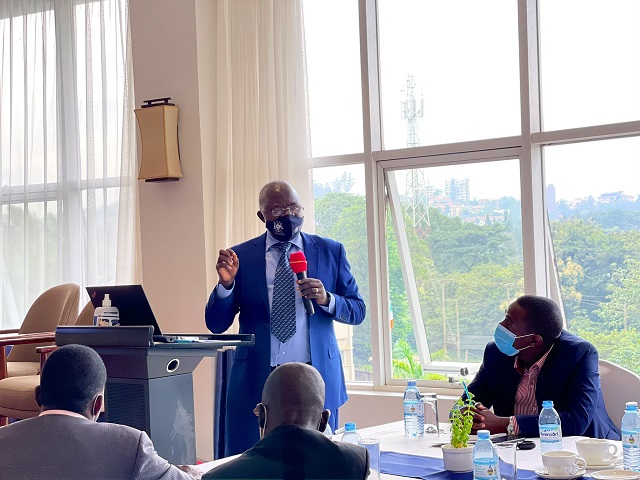
Kampala, Uganda | THE INDEPENDENT | The Ministry of Health (MOH) has blamed the delay in payment of Village Health Teams (VHTs) and other workers who conducted the door-to-door polio immunization exercise in October on the failure of local governments to juggle digital payments.
VHTs were entitled to payment of 60,000 Shillings each. But some of those interviewed by URN say they have since not heard from district leaders regarding when they will receive their pay.
Yokana Nandelege, a VHT in Woshibi village, Buganti sub county in Namisindwa says that the district promised to clear the money after one week of the vaccination exercise, but they are still waiting with no sign that their money will soon be cleared. Alex Gimongo, another VHT from Bushibuta village says that they also missed their pay for the COVID-19 vaccination done early last year.
But Dr Alfred Driwale, the Programme Manager for the Uganda Expanded Programme on Immunisation (UNEPI) says that the ministry transferred money to local governments one to two weeks after the exercise was closed but has started receiving complaints from district leaders that they didn’t get guidelines on how to use e-cash whereas some say transaction charges were not provided for in the budget.
He explains that 78 of the 141 districts that got involved have not yet cleared vaccinators three months after the campaign ended, whereas 18 have only done partial payments.
This comes up as digital payments are being mooted globally as an effective way of dealing with one-off payments associated with public health initiatives such as vaccination campaigns.
According to Patsy Kiconco, a Digital Finance Officer at the World Health Organization (WHO) Regional Office for Africa, before the organization introduced digital payments for campaign health workers, their baseline research identified delay to pay health workers as one of the reasons why campaigns were failing.
Currently in Africa, she says sixteen countries are using digital health payments and the turnaround time for payment has greatly reduced to within three to ten days.
However, while she says digital payments are the way to go as are being popularized in many countries, Driwale says for the case of Uganda, a lot still needs to be done to create awareness and solve glitches that are making campaign workers dread the approach.
He for instance mentions that in some villages, there are power outages that last weeks and yet some VHTs have phone numbers that are not registered in their names and once these are submitted to the system, they can’t be credited with the money.
On his part, Dr Gilbert Mateeka, the Kabale District Health Officer says while they have tried to streamline their system in his district to allow for digital payments, the initial capture of information in the database was laborous and yet the phone numbers they were offered for technical support went unanswered.
Responding to these concerns, Hafsa Tembo, an accountant in the Ministry of Finance said other than being a problem with the e-cash system, the reason districts are experiencing challenges paying campaign health workers is that they didn’t prepare in time.
For other programmes, she says a hundred and twenty-eight districts are already fully using e-cash and they are largely complying with the guideline that once funds are released to districts and are not used within ten working days, they are automatically swept back to the consolidated fund or wherever else they are supposed to be sent.
For her not having a phone number registered in a VHT’s name should not be a problem since they allow the receiver of the money to sign an indemnity form authorizing their funds to go through the submitted number.
Meanwhile, generally, away from healthcare campaigns, the Ministry of Finance has adopted a system requiring all expenditures by the government that are above forty million shillings to be done through e-cash unless there’s a known and approved exception. This guarantees traceability and accountability, according to officials in the ministry of Finance.
****
URN
 The Independent Uganda: You get the Truth we Pay the Price
The Independent Uganda: You get the Truth we Pay the Price



Each and every ministry must make a fellow up of every release to local government. Communities are suffering because of some district technical staffs who always divert conditional releases to other activities and later blame ministry of finance and e-payment system system . all of us should keep an eye in lg leaders